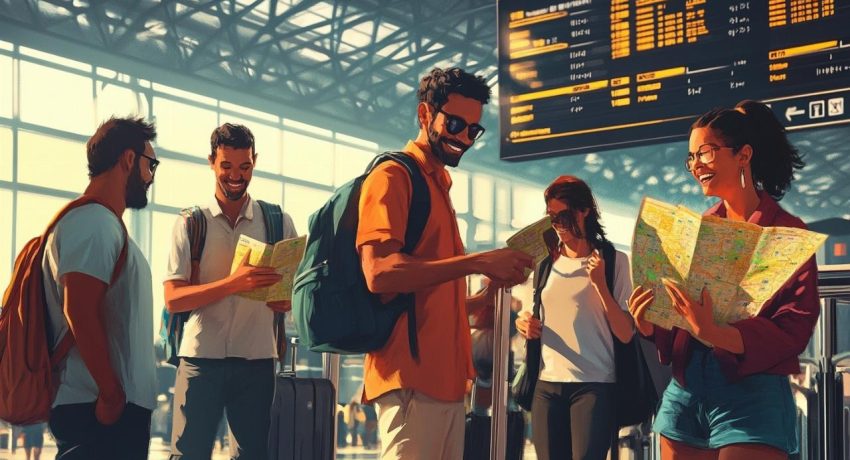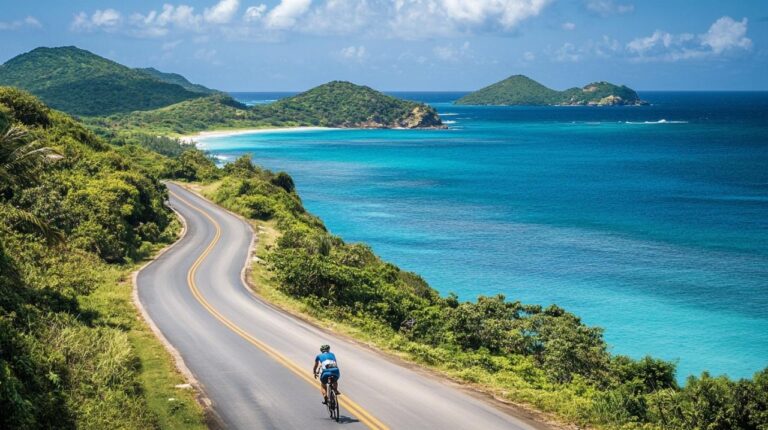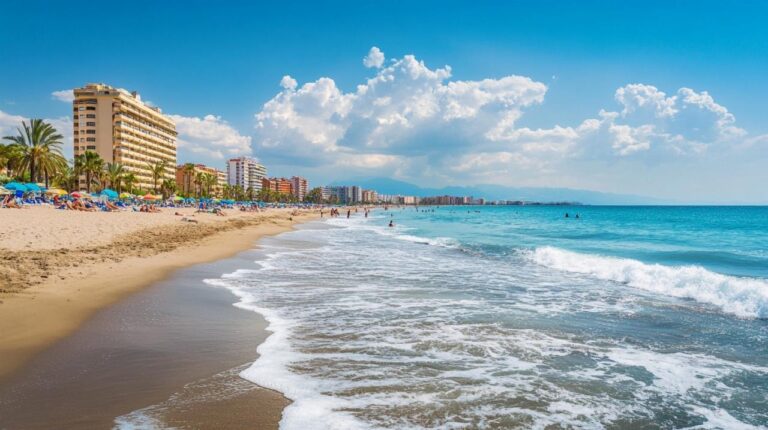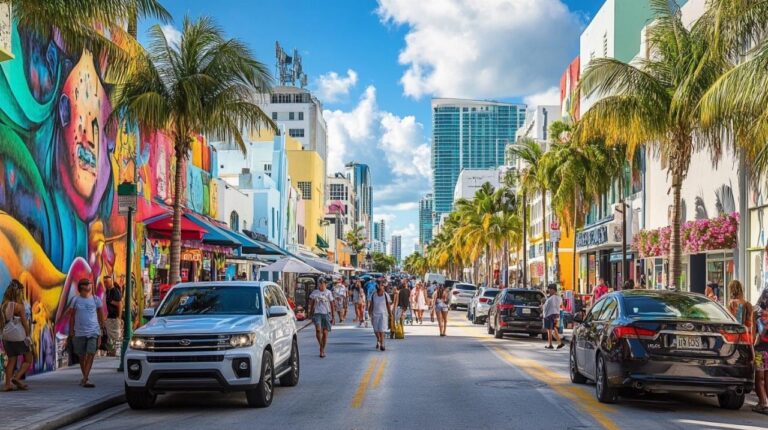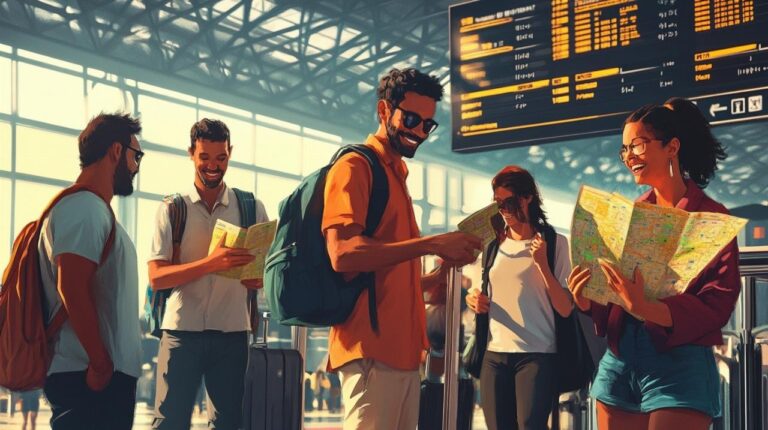Embarking on a journey, whether for leisure or business, is a thrilling experience. However, the key to a truly enjoyable trip lies in thorough preparation. At 4TravelInfo, we understand that effective planning can transform your travel experience from stressful to seamless. Let’s explore some essential tips to ensure your next adventure goes as smoothly as possible.
Packing and preparation
The foundation of a stress-free journey begins long before you step out your front door. Smart packing and meticulous preparation can save you from countless headaches during your travels.
Travelling light: the art of minimal luggage
There’s immense freedom in travelling with less. Instead of packing for every possible scenario, focus on versatile items that serve multiple purposes. Consider using compression cubes to stay organised and maximise space. The rule of thumb among seasoned travellers is to pack half the clothes you think you’ll need and twice the money. Rolling your garments rather than folding them not only saves space but also reduces wrinkles. Remember, most destinations allow you to purchase what you need locally, so don’t burden yourself with excessive luggage. Your future self will be grateful when navigating train stations or cobblestone streets without the weight of unnecessary items.
Document safety: copies and digital backups
Document management is crucial for international travel. Make copies of your passport and other vital documents, storing them separately from the originals. Additionally, scan and save digital copies online in secure cloud storage. This precaution ensures you have access to crucial information if your physical documents are lost or stolen. Remember that many countries require your passport to be valid for at least six months beyond your return date, so check this well before departure. For travel to regions with potential security concerns, consider registering with your embassy to receive alerts and assistance if needed.
Financial readiness
Money matters can quickly become complicated when crossing borders. Proper financial preparation is essential for budget travel and avoiding unnecessary expenses like at 4TravelInfo.
Notifying your bank: avoiding card blocks abroad
Few things are more frustrating than having your card declined while abroad due to suspected fraudulent activity. Contact your bank before departure to inform them of your travel dates and destinations. This simple step prevents automatic security blocks when foreign transactions appear on your account. As a safety measure, carry multiple payment methods including a spare credit or debit card stored separately from your primary cards. Establishing a system for money management while travelling helps maintain your budget and ensures you always have access to funds in an emergency.
Currency and payment options: being financially prepared
Research the local currency and payment preferences of your destination. While cards are widely accepted in many places, some countries still operate predominantly with cash. Consider obtaining a small amount of local currency before arrival for immediate expenses like transportation from the airport. Look for travel credit cards that offer no foreign transaction fees to maximise value for money. When choosing accommodation, focus on the overall value rather than just the price. For instance, an entire apartment may provide better value than a budget hostel bed when you consider the added privacy, kitchen facilities, and space. Moving just a few blocks away from tourist centres often results in significantly lower prices for food and services without sacrificing quality.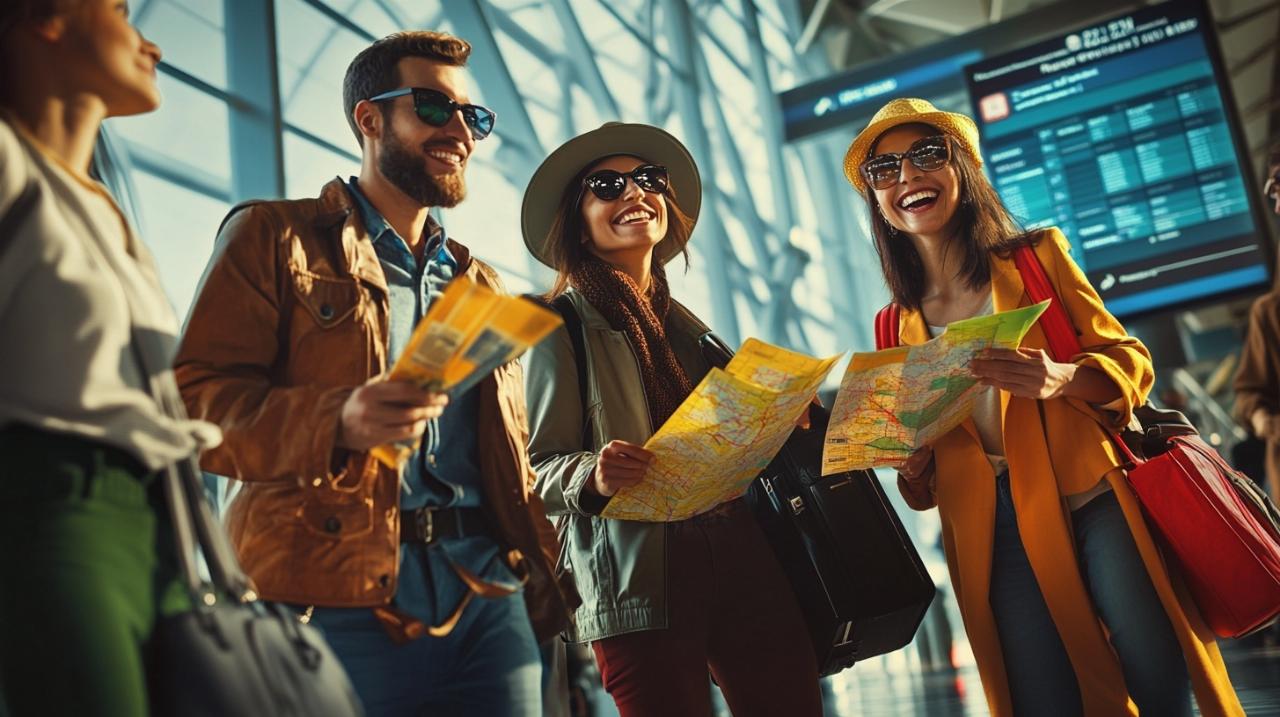
Communication strategies
Effective communication is vital when navigating unfamiliar territories. Preparation can bridge language gaps and help you connect with locals.
Offline tools: maps and translation apps
Technology can be your greatest ally while travelling. Before departure, download offline maps of your destination to your smartphone. This enables navigation without requiring data or internet connection. Similarly, translation apps with offline functionality prove invaluable when attempting to communicate in regions where English is not widely spoken. A portable charger ensures your digital tools remain available throughout long days of exploration. For extended international trips, consider obtaining a local SIM card or eSIM to avoid excessive roaming charges while maintaining connectivity for emergencies or navigation.
Basic phrases: breaking down language barriers
Learning a few key phrases in the local language demonstrates respect and often enhances your experience through warmer interactions with locals. Focus on mastering greetings, thank you, please, and basic questions about directions. This cultural sensitivity creates goodwill and can lead to more authentic local experiences. Remember that patience is crucial when communication becomes challenging. Most people appreciate the effort, even if your pronunciation isn’t perfect. These small attempts at connection can transform your journey from a surface-level tourist experience to a more meaningful cultural exchange.
Safety measures
Prioritising safety allows you to enjoy your travels without constant worry. Preparation and awareness are your best defences.
Travel insurance: why it’s non-negotiable
Travel insurance is an absolute necessity rather than a luxury. Comprehensive coverage protects you against medical emergencies, trip cancellations, and lost belongings. The peace of mind this provides far outweighs the cost. When selecting a policy, ensure it covers medical evacuation and repatriation, as these can be extraordinarily expensive if needed. Accept that theft is a possibility despite precautions and prepare accordingly. Keep your wallet in front pockets, consider zippered pockets or money belts for additional security, and minimise the cash you carry. Know how to quickly cancel cards if necessary and keep emergency funds hidden separately from your primary money source.
Visa requirements: avoiding entry problems
Entry requirements vary significantly between countries and can change without notice. Research visa regulations well in advance of your journey to avoid last-minute complications or denied entry. Some visas require application weeks or months before travel, while others can be obtained upon arrival. Always verify requirements through official government websites or consulates rather than relying solely on third-party information. Be particularly attentive if your itinerary includes multiple countries, as requirements may differ for each destination. Maintaining digital copies of your visa documentation provides backup evidence if questions arise at border control.
Practical essentials
Addressing practical needs enhances comfort and prevents common travel frustrations.
Power solutions: universal adapters and charging
Electrical outlets differ worldwide, making a universal adapter an essential item for international travellers. Research the specific plug types used in your destination and ensure your adapter is compatible. For those travelling with multiple devices, consider adapters with multiple USB ports to maximise charging efficiency. Newer universal adapters often include built-in surge protection to safeguard your electronics from inconsistent power supplies. Remember that some high-powered devices like hair dryers may require voltage converters in addition to adapters. Planning your power needs prevents the frustration of being unable to use essential electronics during your journey.
Health and Wellbeing: Hydration and Food Safety
Maintaining health while travelling requires conscious effort. Carry a reusable water bottle and stay consistently hydrated, particularly during flights when cabin air can cause significant dehydration. Research food safety concerns specific to your destination and take appropriate precautions. While street food offers authentic local experiences, observe hygiene practices and choose vendors with high turnover to ensure freshness. When dining out, establishments filled with locals typically offer better quality and value than tourist-oriented restaurants. Pack basic medications for common ailments like headaches, indigestion, and minor injuries to avoid searching for a pharmacy during discomfort. Prioritising sleep, limiting excessive alcohol, and maintaining some exercise routine helps preserve your energy for exploration and enjoyment throughout your journey.

